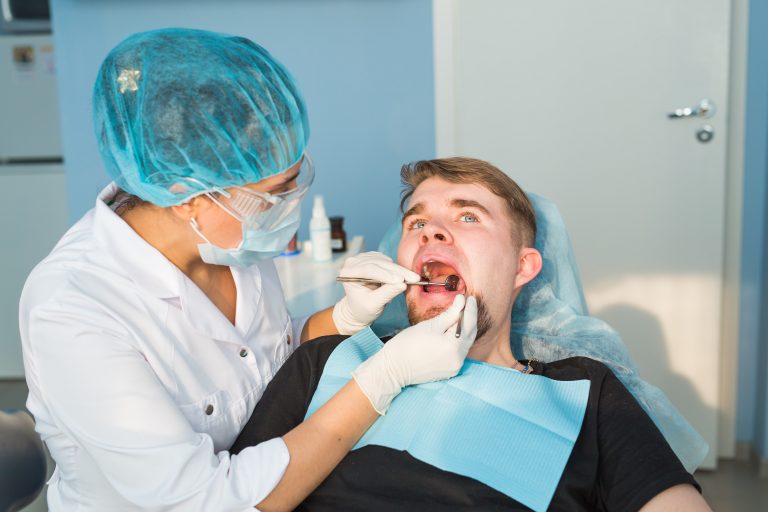
Periodontal disease—also known as gum disease—begins as gum inflammation (gingivitis) and can progress to a serious infection affecting the bone supporting your teeth (periodontitis). It’s the leading cause of adult tooth loss and affects nearly half of adults
Early detection allows us to catch gum issues in the reversible gingivitis stage before they damage bone or cause tooth loss. Without regular checks, gum pockets deepen, bacteria accumulate, inflammation spreads, and bone can be lost, often without noticeable pain .
Every adult should receive a periodontal exam during routine dental visits. Your hygienist will measure pocket depths, check for bleeding and gum recession, and review recent X-rays to assess bone levels .
Periodontal Charting – Measurement of pocket depths, bleeding, and attachment levels.
X‑ray Review – Evaluation for bone loss around tooth roots.
Clinical Assessment – Checking for swelling, gum recession, mobility, and other signs of disease .
Personalized Treatment Plan – Based on findings, a plan is created which may include cleaning below the gumline or further periodontal procedures.
If you would like to undergo periodontal disease detection as well as treatment, Call Us Today and our helpful staff will be more than happy to assist you.
This deep-cleaning treatment removes plaque and hardened tartar from below the gumline and smooths the root surfaces to encourage healing. It typically requires local anesthesia and may be done over multiple sessions for thoroughness .
Consistent home care (brushing twice daily, flossing, and using interdental tools) combined with professional cleanings every 3–4 months is vital to prevent recurring infection. If neglected, bacteria re-colonize pockets, and disease progresses
If deep pockets persist, bone loss continues, or a root tip infection is present, periodontal surgery may be recommended. This can involve:
Flap surgery to remove bacteria and reshape bone
Gum grafting to repair recession and stabilize tissue
Laser procedures (LANAP), which may offer similar outcomes to traditional surgery in some cases
Prevents progression to advanced periodontitis
Saves healthy bone and gum tissue
Helps retain natural teeth and avoid future complex restorations
Supports overall health (untreated periodontitis is linked to conditions like heart disease, diabetes, and pregnancy complications)

All rights reserved. © 2025